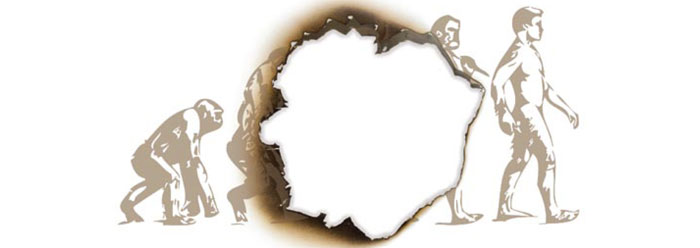Teachers and Christian leaders often encourage students to question things, for this can be a real impetus to growth. There’s nothing wrong with asking questions or even with having doubts, for they often expose wrong information and encourage further study. As it relates to Scripture, there will always be a good answer, even if an initial lack of ready answers requires that we shelve the question for a future time. Our faith in the Word of God should be firm.
For a Christian, questions regarding evolution’s claims should lead to greater understanding, or a postponement of answers…not to disbelief. As they relate to evolution and the Flood, we have answers to many difficult questions now, and have reason to believe we’ll soon have more. We’ll never have all the answers this side of eternity, but there’s no need to disbelieve.
Unfortunately for our theological forefathers in the 1800s, their doubts led to unbelief, and soon pages were being ripped from Scripture. In those important decades, Charles Lyell and others championed the questions, insisting that the Bible could not be believed, and many Christian leaders caved in. Scientists minimized the impact of Lyellian-inspired compromise in the church by holding fast to creation and Flood doctrines, but the appeal of more autonomy from Scripture came to full flower when Darwin proposed his views.
Striving to accommodate long ages and evolution to Scripture, ardent Bible-believing Christians proposed various ways to incorporate them, concepts that still plague Christianity today. Those holding a higher view of Scripture gravitated to the gap theory, which places long ages between the first two verses of Genesis 1, followed by global destruction due to Satan’s fall and six days of re-creation. This allowed Christians to embrace both Christianity and long-age evolution.
Similarly, others succumbed to theistic evolution, for the same reason. Since in their minds science had "proved" evolution, they felt they salvaged Scripture by claiming evolution was God’s method of creation. More recently has come the day-age concept, which holds that the days of the creation week were equivalent to the geologic ages, during which God occasionally created some new thing. In each case, Scripture was altered. These accommodationist views compromised only Scripture…never was the evolution/long age/uniformitarian view altered at all.
All such views suffer from the same weaknesses and can be refuted at length, as they have been in other writings. Suffice it to point out that all include a downgrading of the Flood to a local or tranquil flood that is not responsible for the rock and fossil record. They also weaken the doctrine of God’s creative majesty, substituting a trial and error approach for His sovereign, omniscient will.
Each also disregards a cardinal doctrine of Christianity: "The wages of sin is death" (Romans 6:23), spiritual death and physical death that necessitated the death of Christ to pay sin’s penalty, for "Christ died for our sins" (1 Corinthians 15:3). According to all compromise views, death of conscious living things long predated man’s appearance, and certainly was present long before man’s sin incurred the Curse. But if physical death was here before sin, then it could not really be the "wages of sin" since it is indeed the key to man’s evolution. In evolution, death produced man by causing less fit types to go extinct over time. Thus, death is regarded as good, and by extension Christ’s death paid no such penalty.
In this way, all compromise views negate non-negotiable doctrines. While it is not impossible for a Christian to believe in any of the compromises mentioned above, it is impossible for any one of them to be true if Christianity is true. And if any are true, then many of Christianity’s core doctrines are wrong.
* Dr. Morris is President of the Institute for Creation Research.
Cite this article: Morris, J. 2011. Doubt Versus Unbelief. Acts & Facts. 40 (8): 15.























